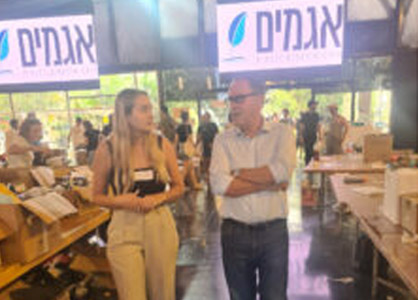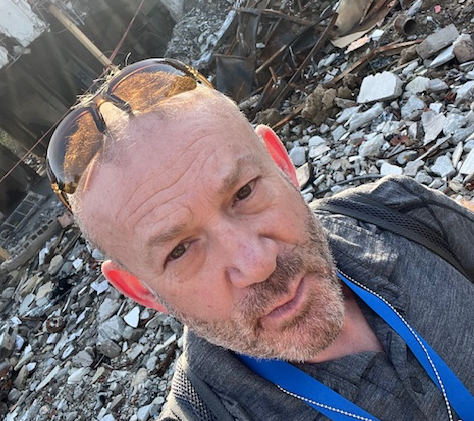
Link Exists Between Appetite and Elderly Mortality
Link Exists Between Appetite and Elderly Mortality
May 12, 2009
BEER-SHEVA, ISRAEL, May 11, 2009 — A new study by a Ben-Gurion University of the Negev (BGU) researcher reveals a linkage between elderly people’s appetite and mortality rates, with those who report impaired appetite more likely to die sooner.
The study, published in the May issue of the Journal of Nutrition, Health & Aging, demonstrated a link between the Daily Activity Energy Expenditure (DAEE–an accurate measurement of total physical activity), appetite and mortality among well functioning community-dwelling adults.
Information on an elderly patient’s eating habits may be important for health providers regarding risk for patient deterioration and mortality.
“These findings are important because they show how subjective appetite measurement can predict death, even when adjusting for health and many other variables,” said Dr. Danit Shahar, a researcher with BGU’s S. Daniel Abraham International Center for Health and Nutrition and Department of Epidemiology.
“Past studies failed to show an association with survival. It was thought that decreased appetite may be an indicator or a result to other health problems, and that malnutrition, rather than low appetite was associated with mortality,” said Shahar.
“Dietary Factors in Relation to Daily Activity Energy Expenditure and Mortality among Older Adults” analyzes data from the Health, Aging and Body Composition (Health ABC) study to demonstrate that higher DAEE is strongly associated with increased appetite, resulting in lower risk of mortality in healthy older adults.
Using 298 older participants (ages 70-82 years) in the Health ABC study, researchers analyzed DAEE and dietary factors, including self-reported appetite, enjoyment of eating and intake assessed by the Block Food Frequency Questionnaire (FFQ) and Healthy Eating Index (HEI).
Participants who reported improved appetite were at lower risk for mortality. Similarly, participants who reported good appetite at baseline had a low risk for mortality. The results remained significant taking into account health status, physical activity, demographic and nutritional indices. Follow up was nine years.
ABOUT AMERICANS FOR BEN-GURION UNIVERSITY
By supporting a world-class academic institution that not only nurtures the Negev, but also shares its expertise locally and globally, Americans for Ben-Gurion University engages a community of Americans who are committed to improving the world. David Ben-Gurion envisioned that Israel’s future would be forged in the Negev. The cutting-edge research carried out at Ben-Gurion University drives that vision by sustaining a desert Silicon Valley, with the “Stanford of the Negev” at its center. The Americans for Ben-Gurion University movement supports a 21st century unifying vision for Israel by rallying around BGU’s remarkable work and role as an apolitical beacon of light in the Negev desert.
About Ben-Gurion University of the Negev
Ben-Gurion University of the Negev embraces the endless potential we have as individuals and as a commonality to adapt and to thrive in changing environments. Inspired by our location in the desert, we aim to discover, to create, and to develop solutions to dynamic challenges, to pose questions that have yet to be asked, and to push beyond the boundaries of the commonly accepted and possible.
We are proud to be a central force for inclusion, diversity and innovation in Israel, and we strive to extend the Negev’s potential and our entrepreneurial spirit throughout the world. For example, the multi-disciplinary School for Sustainability and Climate Change at BGU leverages over 50 years of expertise on living and thriving in the desert into scalable solutions for people everywhere.
BGU at a glance:
20,000 students | 800 senior faculty | 3 campuses | 6 faculties: humanities & social sciences, health sciences, engineering sciences, natural sciences, business & management, and desert research.
For all press inquiries, please contact:
James Fattal, J Cubed Communications
516.289.1496



